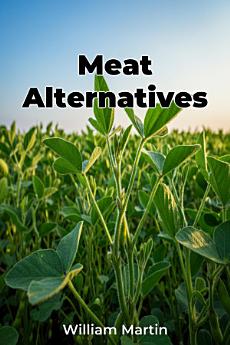Meat Alternatives
About this ebook
Did you know that conventional meat production significantly contributes to greenhouse gas emissions, deforestation, and water pollution? This book argues that meat alternatives could provide a more sustainable and ethical path forward, though not without challenges.
The book uniquely balances the potential benefits and challenges of meat alternatives. It begins by differentiating between plant-based and cell-based (synthetic) meats. It then compares their environmental footprintsâgreenhouse gas emissions, land use, and water consumptionâto those of conventional meats like beef and pork. Later chapters delve into consumer attitudes, market trends, and the regulatory landscape.
Ultimately, Meat Alternatives concludes with a discussion on future innovations and the potential to reshape the global food system.








